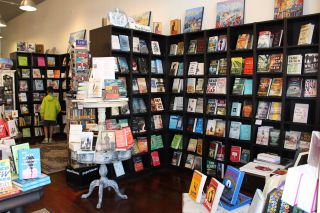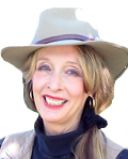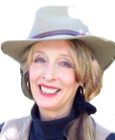Health
Where Is Your Community?
Is American community an endangered species?
Posted February 19, 2015

For the past few years, community has been disappearing. In San Jose, California, our neighborhood coffee shops and independent book stores have been replaced by franchises and online merchants. Mission City Coffee Roasting, a meeting place for students, artists, and writers and site for weekend folk concerts, is gone now, replaced by another Starbucks, and there’s only one independent bookstore left in San Jose.
Have we become too busy for community? With our days filled with electronic gadgets, longer work hours and commutes, few of us know our neighbors, which can be unhealthy and unsafe. One afternoon the people across the street from me were robbed. Their next door neighbors were home, but no one noticed.
In his classic Bowling Alone, Robert Putnam lamented the decline in civic engagement, the losses to community groups from the Elks, Rotary, and Optimists to the League of Women Voters as more and more Americans have been staying home watching television. Offering what Putnam calls “a kind of pseudopersonal connection to others” (2000, p.242), television gives people a false sense of community, a feeling that they “know” the familiar faces of actors and news personalities that appear on their screens each day.
But community requires interactions with real human beings, not images on a screen. And we need community. Psychologists say that social support is essential to our physical and emotional health, citing the lack of social support as a risk factor for a host of stress-related illnesses, anxiety, depression, and cardiovascular disease (Karren, Smith, & Gordon, 2014, pp. 235-245).
Like many people, I used to find my community at work. In the 1990s, I wrote in The Tao of Inner Peace, that “we have a vibrant community of spirit, supporting one another as persons and professionals. My department colleagues have become an extended family, celebrating each other’s successes and helping each other through life’s challenges” (2000, p. 268). But that sense of community has been eroded by the proliferation of temporary workers, now common in fields from industry to higher education. In the past few years, as tenured faculty and senior lecturers have retired, administrators have replaced them with contingent faculty, contract workers who come and go. Now on many afternoons, the hallways are empty, I rarely see my colleagues, and many people I knew last year have mysteriously disappeared, replaced by a procession of strangers.
Community is vital for our health (Karren, Smith, & Gordon, 2014) and essential to our democracy (Putnam (2000). We cannot take it for granted.
We can cultivate community by supporting our local businesses. Last year an adventurous young couple, Cheryl and Steve Hare, opened an independent bookstore, Village House of Books, in my town of Los Gatos. The bookstore has become a friendly center of community with books, author events, and art from local artists. I go there often, recommend it to friends, and give store gift certificates as birthday presents.
We can also cultivate community by reaching out. Instead of spending lunch hour at your desk answering e-mail, invite a friend or colleague to join you for lunch. Meet friends for work outs at your local gym, or start a neighborhood walking group.
Now it’s your turn. What can you do to cultivate community in your life?
References
Dreher, D. (2000). The tao of inner peace. New York, NY: Penguin Putnam.
Karren, K.J. Smith, N. L., Gordon, K. J. (2014) Mind body health: The effects of attitudes, emotions, and relationships. New York, NY: Pearson.
Putnam, Robert. D. (2000). Bowling alone: The collapse and revival of American community. New York, NY: Simon & Schuster.
Village House of Books: http://villagehouseofbooks.com/
********************
Diane Dreher is a best-selling author, personal coach, and professor at Santa Clara University. Her latest book is Your Personal Renaissance: 12 Steps to Finding Your Life’s True Calling.
Follow Diane on Twitter: Diane Dreher (@dianedreher) on Twitter
Like Diane on Facebook: Diane Dreher | Facebook




